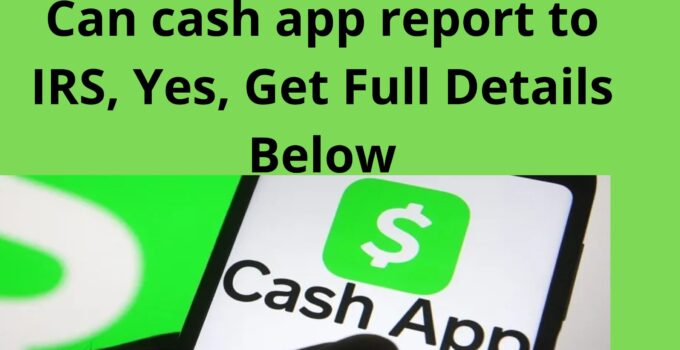Can Cash app report to IRS? Yes, and this guide is here to give you all that details.
If you use the cash app regularly, you have heard of the new regulations. It is also why you are here to confirm whether the cash app reports to the IRS.
Well, you have come to the right place to get the answer. Here you will not get to know the answer but also what the new regulation means for you as a Cash app user,
Can cash app report to IRS
Yes, the cash app reports to the IRS when you receive $600 or more. The new regulation was announced on Jan. 1, 2022. As per the regulation, the cash app will have to send to its users Form 1099-K, Payment Card, and Third Party Network Transactions which shows all transactions the user made during the 2022 tax year through mail or electronically.
You may wonder how all this came about; thus, let’s take a deeper look. Over the years, the Cash app was not required to report to the IRS, but the government came up with a new regulation which aims to rescue Americans. The target is to get as much as a tax, thus introducing this new tax rule.
The new rule doesn’t target cash apps but most third-party payment networks. All that is required is a cash app to send the 1099 K forms to users and use the form to file the tax.
What to know as a cash app user
If you are a cash app user, there are several details you need to know about this new regulation. If you use the cash app and transact income is $20,000 more or have 200 separate transactions within a year, you will receive Form 1099-K from the Cash app.
The form 1099-K shows the income which was reported to the IRS. Besides this Cash app is obligated to report any transaction which is $600 and more.
Even though this approach introduces a new method of reporting, it makes no changes to what is taxable and what is deductible. For example, whether you are transferring money to a buddy or paying someone back for lunch, the money is still deemed nontaxable in most situations.
However, if you get money due to a business transaction, you are expected to claim the funds on your tax return and pay taxes on the resulting earnings.
Even if you are not a business owner, it is important to maintain accurate financial records. If you are audited, you will demonstrate whether the money is taxable or nontaxable in this manner.




